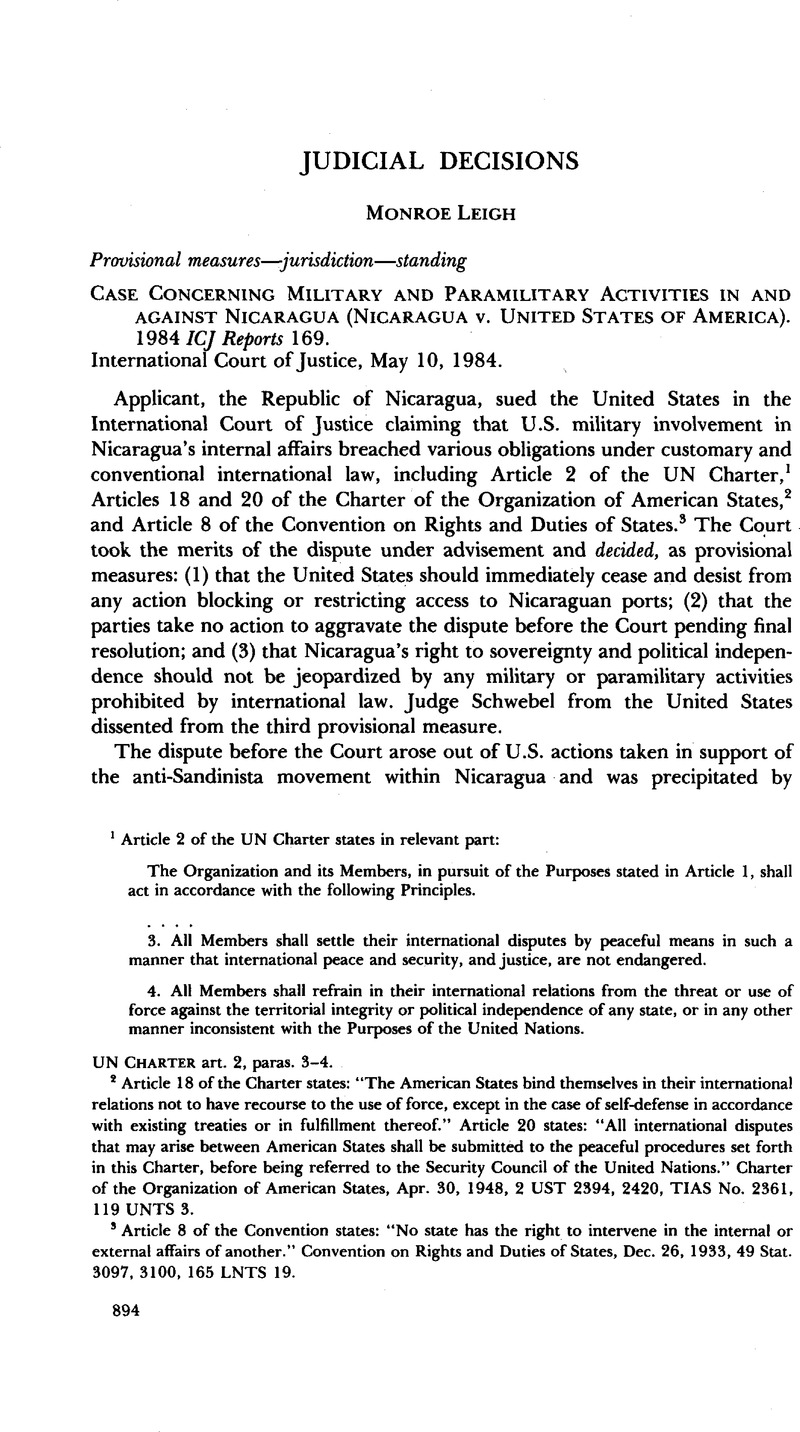No CrossRef data available.
Published online by Cambridge University Press: 16 May 2017

1 Article 2 of the UN Charter states in relevant part:
The Organization and its Members, in pursuit of the Purposes stated in Article 1, shall act in accordance with the following Principles.
. . . .
3. All Members shall settle their international disputes by peaceful means in such a manner that international peace and security, and justice, are not endangered.
4. All Members shall refrain in their international relations from the threat or use of force against the territorial integrity or political independence of any state, or in any other manner inconsistent with the Purposes of the United Nations.
UN Charter art. 2, paras. 3–4.
2 Article 18 of the Charter states: “The American States bind themselves in their international relations not to have recourse to the use of force, except in the case of self-defense in accordance with existing treaties or in fulfillment thereof.” Article 20 states: “All international disputes that may arise between American States shall be submitted to the peaceful procedures set forth in this Charter, before being referred to the Security Council of the United Nations.” Charter of the Organization of American States, Apr. 30, 1948, 2 UST 2394, 2420, TIAS No. 2361, 119 UNTS 3.
3 Article 8 of the Convention states: “No state has the right to intervene in the internal or external affairs of another.” Convention on Rights and Duties of States, Dec. 26, 1933, 49 Stat. 3097, 3100, 165 LNTS 19.
4 1984 ICJ Rep. 169, 174–75. The United States deposited its initial declaration recognizing the compulsory jurisdiction of the Court with the UN Secretary-General on Aug. 26, 1946.
5 The United States also argued that jurisdiction was lacking because Nicaragua had not perfected the process of depositing an instrument ratifying the Protocol of Signature of the Permanent Court of International Justice Statute (the predecessor of the International Court of Justice Statute) with the Secretary-General of the League of Nations. See 1984 ICJ Rep. at 176– 78.
6 Id. at 180.
7 59 Stat. 1055, TS No. 993 (1945).
8 1984 ICJ Rep. at 182.
9 Id. at 187.
10 Id. at 190 (Schwebel, J., dissenting).
11 South West Africa (Ethiopia v. S. Afr.; Liberia v. S. Afr.) (Second Phase), 1966 ICJ Rep. 6, 47 (Judgment of July 18). In that case, the Court was divided and the deciding vote was cast by the President.
12 Case Concerning the Barcelona Traction, Light & Power Co., Ltd. (New Application) (Belg. v. Spain), 1970 ICJ Rep. 4 (Judgment of Feb. 5).
13 Id. at 32.
14 1984 ICJ Rep. at 198.
15 Id. at 187.